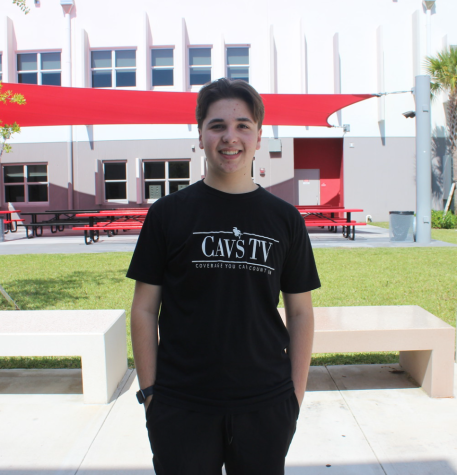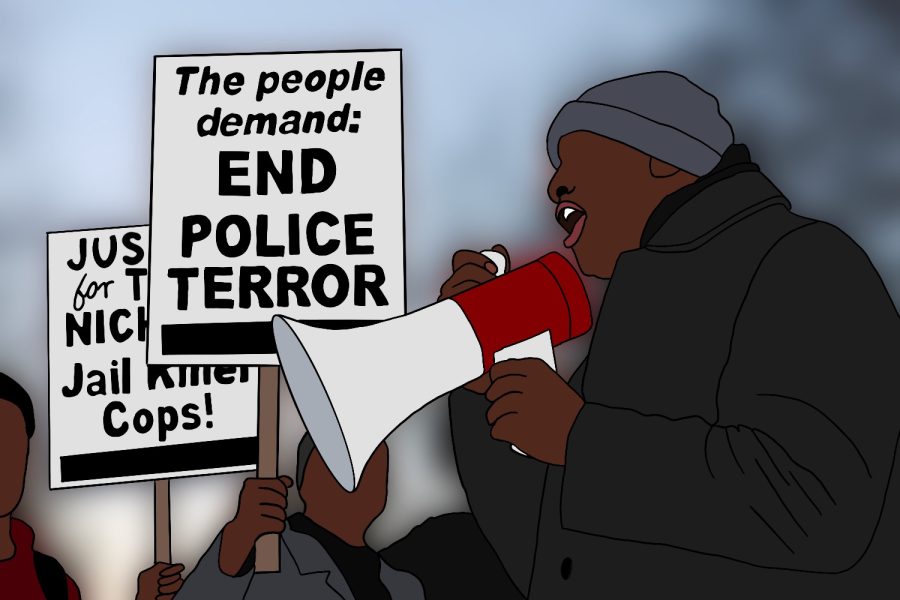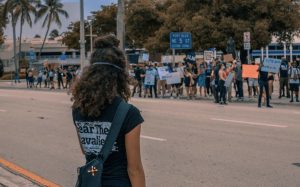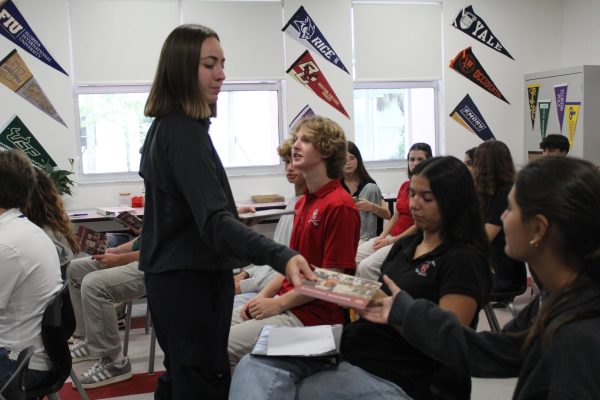Police Brutality: The Murder of Tyre Nichols
Protests take to the streets after the killing of Tyre Nichols.
Racism among the United States police force has been brought to public attention for years now. Recognized as two of the most famous cases of racially motivated police brutality in the U.S., Breonna Taylor was fatally shot after Louisville police officers forced entry into her apartment, and George Floyd was choked and killed by a Minneapolis police officer just a few months later. The story of Tyre Nichols might sound all too familiar: a Black man sentenced to death by police forces for inexcusable reasons.
On Jan. 7, Tyre Nichols, a 29 year-old Black man, was pulled over by Memphis police for reckless driving. Nichols was dragged out of his own car and ordered to the ground. Officers inappropriately shouted profanities, employing weapons like a baton and taser. Battered by the five officers, he died three days later on Jan. 10 in the hospital. Evidence collected by the officer’s body and street cameras, accompanied by an independent autopsy released by the family’s lawyers found that he “suffered extensive bleeding caused by a severe beating.”
“I feel like that’s totally unnecessary, the amount of violence that was acted upon him. It’s over the top, and when you hear these stories, it’s like, okay, something’s wrong here. He didn’t deserve this, not for just speeding, and I don’t think anyone does. This shouldn’t be happening,” freshman Yara Korse said.
The Memphis Police Department fired Preston Hemphill, Tadarrius Bean, Demetrius Haley, Justin Smith, Emmitt Martin III and Desmond Mills Jr. on Jan. 20 for excessive force and clearly failing to intervene or provide help. Six days later, five of those officers were rightfully charged with multiple felonies, among those second-degree murder.
“Well, it definitely shows that the system itself is completely unjust. No force was needed, and yet they still delivered a beating enough that killed him days later. And then being able to do that without getting punished, at least not immediately. Just the fact that they’re able to do that at all is horrific,” freshman Alyssa Dopico said.
It is impossible to hide the disgusting fact that American police disproportionately use lethal force against African-Americans. On-duty police fatally shoot about 1,000 people every year, a quarter of which are Black. Additionally, about one in every 1000 Black men are murdered by the American police, which makes them two to five times more likely to be slaughtered than White men. The innocence of the Black community is completely disregarded, and their lives are unfairly being tossed aside. When racial bias weaves its way into law enforcement, a simple encounter at a traffic stop can rapidly escalate into racially-motivated murder like it did for Nichols. With this, abhorrent crimes and murders are normalized, and Black hate is further promoted.
In an attempt to target racial bias and profiling, police officers are required education with what is known as implicit bias training. Through a seminar which tackles the psychological theory of the connection between unconscious stereotypes and discriminatory action, officers are taught that race should have no correlation with the necessity of violence. However, the message does not seem to stick with many, proving implicit bias training is not given as much importance as physical training, the kind that enforces weapons and abuse. Having clearly shown no beneficial results, numbers continue to increase, and people continue to be killed.
After the acquittal of George Zimmerman in the murder of Trayvon Martinlit, three Black organizers lit a hungry spark with the hashtag, #BlackLivesMatter. In 2013, Alicia Garza, Patrisse Cullors, and Opal Tometi organized the Black Lives Matter movement, with the purpose of eradicating white supremacy and ending violence inflicted upon Black communities. The cycle of posting the same hashtags years later, following each killing of a Black life is exhausting. From the story of Taylor and Floyd, to now Nichols, hearing how this pattern continues across the nation is frustrating beyond belief.
“I think officers need to understand that your race, background and even where you live should not affect the way they have to take action. They grew up with different beliefs and biases, but they still have not learned, even though it’s not like that anymore. When this gets put into play, it’s definitely an abuse of power that stems from racial profiling,” freshman Leandra Ayala said.
Police in our country have one duty: to protect the lives of the people they serve, not end them. Racial bias already fills up the chairs of politicians and our legal system, but when it is the reason for killings accomplished by our own protectors, we know that our nation has failed us. Again and again, Black people are being targeted simply because of their race, to a point where their lives end on their way home. There are no excuses for this behavior, and instead of repeating such heinous murders, we must learn from the hurt and anger they have caused.
Your donation will support the student journalists of Coral Gables Senior High School. Your contribution will help us cover our annual website hosting costs.

As a junior in the International Baccalaureate program, Marina Astorga is excited to come back to CavsConnect for her third year. As this year’s Co-Editor-in-Chief,...

Anthony Abrahantes is a senior in the International Baccalaureate program. Born in Miami, Anthony is the middle child in his family. This will be his third...









